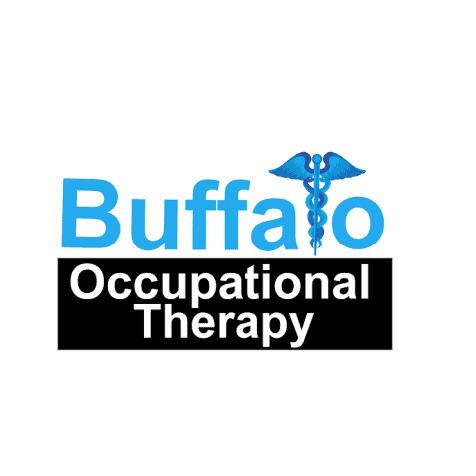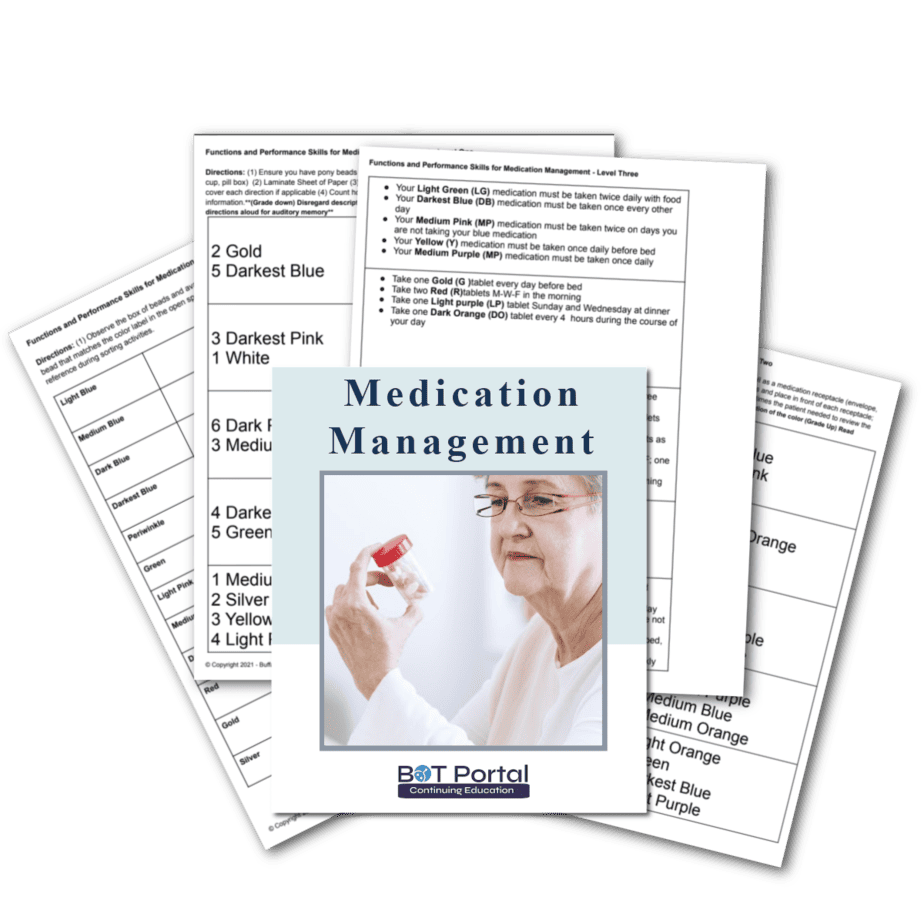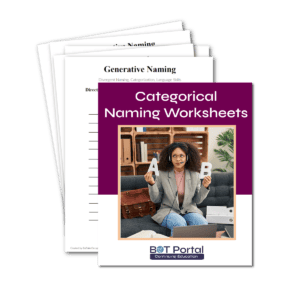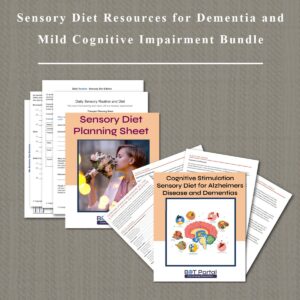Description
Medication Management Worksheets for Occupational Therapy
Beads and Simulated Sorting and Organization for Med Management
Download the pdf for “Medication Management Worksheets for Occupational Therapy” for a printable packet to use with your patient who may need a specially designed treatment for executive function, sorting, categorization, following direction, information processing, insight, reasoning, organization, and so much more! Medication Management should be designed on a continuum in occupational therapy and this packet allows the practitioner to address the skills necessary to achieve this task for health management throughout a plan of care.
How I use the activity:
- Ensure you have a “bead kit” with all corresponding colors for initial sort
- Print and Laminate
- Use in the initial treatments for baseline of executive function, ability to follow instructions, remain attentive to task, visual perception/visual discrimination, fine motor, and integration into health management (medication management)
How I use the activity:
Medication management is a crucial aspect of daily living, particularly for individuals with complex health conditions or cognitive impairments. Occupational therapy (OT) plays a significant role in teaching medication management skills, drawing on various therapeutic principles to address the diverse needs of clients. Here’s how OT approaches medication management, encompassing executive function, cognition, fine motor skills, and more:
- Assessment of Functional Abilities: OTs conduct comprehensive assessments to evaluate an individual’s functional abilities, including cognitive skills, fine motor coordination, visual perception, and executive function. This assessment helps identify strengths and areas of difficulty related to medication management.
- Executive Functioning Skills: OTs address executive functioning skills, such as planning, organizing, initiating, and sequencing tasks, which are essential for effective medication management. Clients learn strategies to create medication schedules, set reminders, and prioritize tasks to ensure timely and accurate administration of medications.
- Cognitive Skills Training: OT interventions focus on improving cognitive abilities necessary for medication management, such as attention, memory, problem-solving, and decision-making. Clients engage in activities to enhance cognitive flexibility, adaptability, and error detection when managing complex medication regimens.
- Visual Perception and Reading Skills: OTs work with clients to improve visual perception and reading skills needed to interpret medication labels, dosage instructions, and prescription information accurately. Clients may practice matching medication names with corresponding pills, identifying dosage amounts, and understanding medication warnings and precautions.
- Fine Motor Coordination: OT interventions target fine motor coordination and dexterity required for handling medication containers, opening pill bottles, and manipulating pill organizers. Clients practice techniques to improve grip strength, hand-eye coordination, and finger dexterity to facilitate safe and efficient medication administration.
- Environmental Modifications: OTs assess the home environment and recommend modifications to promote medication safety and accessibility. This may include organizing medication storage areas, labeling pill containers with large print or color-coded labels, and removing clutter or obstacles that may impede medication access.
- Adaptive Equipment and Assistive Technology: OTs prescribe adaptive equipment and assistive technology devices to support individuals with physical limitations in managing medications independently. This may include pill organizers with audible reminders, pill splitters, reachers, and automated medication dispensers.
- Education and Training: OTs provide education and training to clients and caregivers on medication management strategies, including proper administration techniques, potential side effects, medication interactions, and adherence strategies. Clients learn how to advocate for their health needs and communicate effectively with healthcare providers.
- Functional Integration: OT interventions focus on integrating medication management skills into daily routines and meaningful activities to promote generalization and long-term adherence. Clients practice incorporating medication administration tasks into self-care routines, work responsibilities, and leisure activities.
- Collaboration with Healthcare Team: OTs collaborate with other members of the healthcare team, including physicians, pharmacists, nurses, and caregivers, to ensure coordinated care and optimize medication management outcomes. This interdisciplinary approach promotes continuity of care and addresses the complex needs of clients with multiple health conditions.
Other Helpful Links:
Check out BOT Portal: Resource Site for Occupational Therapy Students and Practitioners




